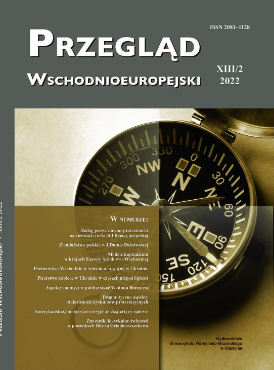Польська проблема у російській консервативній політичній думці середини ХІХ століття
Polish problem in Russian conservative political thought in mid-19th century
Author(s): Yurii Zemskyi, Aleksandr TrygubSubject(s): History
Published by: Wydawnictwo Uniwersytetu Warmińsko-Mazurskiego w Olsztynie
Keywords: Polish gentry Polish peasantry Russian politics social reforms pro-Russian “re-education”
Summary/Abstract: Liberal reforms of Tsar Alexander II after Russia’s defeat in the Crimean War gave the Poles great hopes for satisfying their state-building aspirations. Russians also demanded reformation of all spheres of life of the empire. But from the middle of 1862, the Russian press succeeded to rouse pro-imperial sentiments among the Russian public, using anti-Polish rhetoric. This so-called “Polish threat” became a means of mobilizing Russians to defend their «motherland», which was identical in their understanding to the concept of empire. Reputable Russian publicists stated the conviction that allowing the Poles to create a state is equivalent to provoking a collapse of the Russian state. Thus, the Poles should be left in the Russian Empire, but at the same time, they should become Slavs again, that is, to “awake” in them the specific Slavic culture they had lost, becoming Catholics and cultivating their gentry noble values. Polish peasantry was considered being the basis of the «re-education» of Polish society, and, according to the Russians, preserved a specific Slavic identity, therefore had allegedly “pro-Russian” sentiments that only need to be supported with the correct reforms.
Journal: Przegląd Wschodnioeuropejski
- Issue Year: XII/2021
- Issue No: 1
- Page Range: 11-19
- Page Count: 8
- Language: Ukrainian

